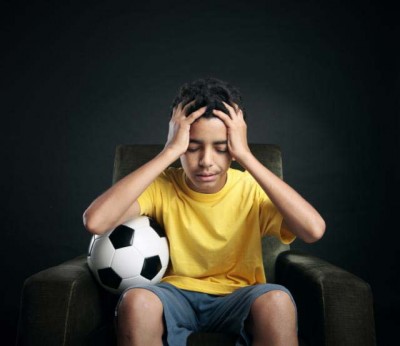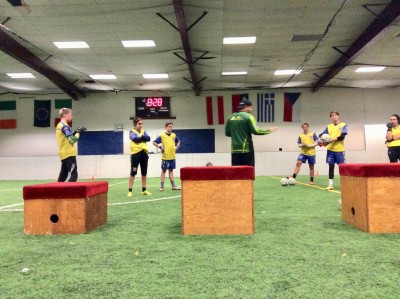Zuriel Lozano
Individualized Goalkeeper training the key to growth
Most youth clubs now include goalkeeper training. Because there are so many goalkeepers in these trainings, keeper coaches might become quickly overwhelmed. According to many parents, these trainings resemble a “factory” or assembly line of people waiting or standing in line to be instructed. With so many players in line doing the same thing to the guys ahead of them, how can your goalkeeper possibly improve?
In addition, youth clubs and other local goalkeeper training programs provide additional training and coaches. However, the number of goalkeepers enrolled in their programs is more important than the caliber of their training. These goalkeeper programs are primarily designed to “keep goalkeepers busy” so that they appear to be “working hard” in front of their parents. This is an old coaching trick! Some of these goalkeeper programs have rigid curricula and stipulations, which frequently do not benefit the keepers.
Few facts about goalkeeper training:
The development of a top-level goalkeeper in a group setting is challenging. There is only ONE goalkeeper in the goal, not a group.
Since every young athlete is different, it’s unrealistic to expect them to get the same level of care in a program with many participants.
Every field player and goalkeeper develops and improves at their own pace. When working with big groups, coaches are more focused on making sure the drills are being done correctly rather than giving each player ample attention.
Personal or personalized training is provided to professional athletes, professional goalkeepers, and ELITE athletes. This is why these guys have reached a completely new level that most athletes would never achieve.
Certain children will receive more attention than others during group trainings. Coaches prefer to prioritize “better or more advanced” goalkeepers above those who are struggling. Why? Because these coaches want bragging rights for training the greatest athletes and developing large egos when these goalkeepers move on to college or beyond. Meanwhile, 80% of youth club keepers fail to progress and flourish in this position.
In conclusion
When it comes to your child’s training, you should consider outside the box and seek out a program that will provide individual attention and a professional training environment where the keeper is continuously challenged. The goalkeepers of today have to be fast, strong, and most of all, confident. So, for a goalkeeper to be able to fight with the rest of the world, he or she needs to have training that is specific to him or her.
Learn about our goalkeeper training programs and how we care for our amateur and professional goalkeepers throughout the world. So MANY parents and goalkeepers are very happy with how we treat each of our keepers as an individual. So, it’s amazing to see how much they’ve grown and changed. We care a lot about our students’ training and their future in the goal, and we are active in every part of that.
More to explorer
Who stresses more during games parents or athletes?
Nervous soccer parents

Understanding Athlete Burnout
Athlete burnout is defined by Sport Psychologists as: physical/emotional exhaustion, sport devaluation, reduced athletic performance and accomplishment”. Burnout can occur at a VERY YOUNG AGE. I’ve personally met many 12 yrs old with serious signs of burnout. But sadly there are a number of parents who refuse to believe their kids are too young to burnout, instead they insist that

Goalkeeper coaching styles
There is a BIG difference between TRAINING a goalkeeper and DEVELOPING a goalkeeper. I’m very sure that you have encountered many coaches, who, before they even say their names, they talk about their winning records, championships, their “national rankings” and their tons of certifications they’ve gained over the years. It seems as if their egos and history of winning records